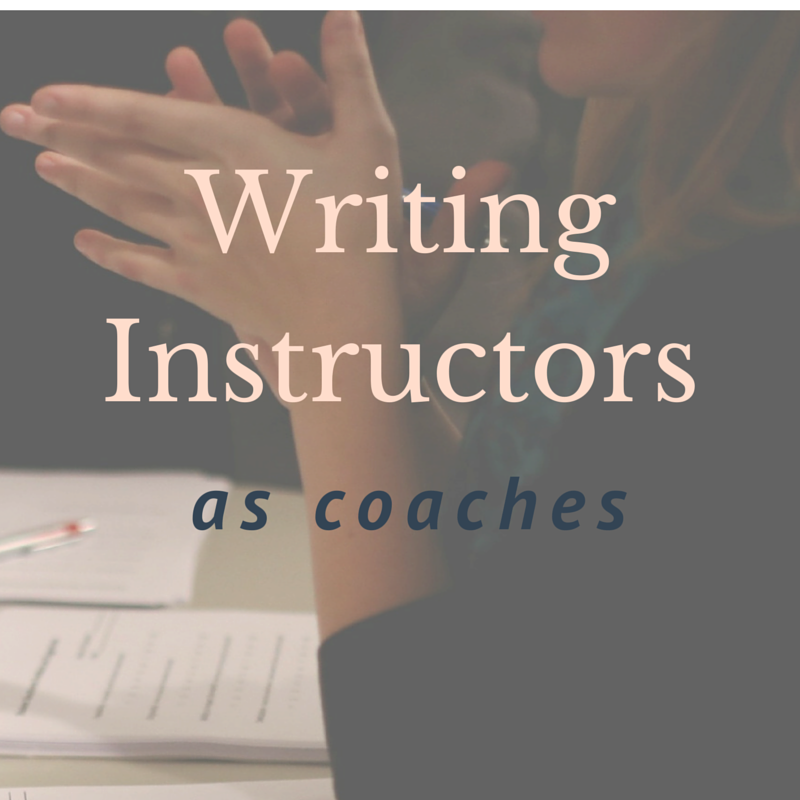Who Needs a Writing Buddy? You Do!
Work, family, cleaning, exercise, the latest World Cup game—every day brings countless responsibilities and distractions that get in the way of writing. Writing takes time, and it can be hard to stay motivated and easy to find another day slipping by without another word on the page.If this sounds familiar, what you need is a writing buddy. Your buddy is someone who checks in with you periodically, perhaps once a month, once a week, or even every day, to hold you responsible for pursuing your writing goals. The idea is that if you share your writing goal with another person who commits to checking in with you on that goal, you’re more likely to stay on track. Having a writing buddy or buddies can also help you feel connected with a writing community.
WriteCast Episode 10: Faculty Writing Advice: Interview With Dr. JaMuir Robinson

This month's WriteCast episode features a faculty interview from the Atlanta residency in April. Nik speaks with Dr. JaMuir Robinson, faculty member in the School of Health Sciences, about her writing advice for students. Also in this episode, Brittany explains her role as the coordinator of Writing Center residency instruction and design.
Faculty Spotlight: Dr. Kate Swetnam, Riley College of Education and Leadership
 |
| Dr. Kate Swetnam is a Walden graduate. |
Writing Instructors as Coaches
In high school, I played competitive volleyball and trained
as a gymnast. During that time, I had many different coaches. Coaches who
swore, coaches who cried, coaches who got red in the face with anger and
frustration, and coaches who were as close as family.
One particular volleyball coach—I’ll call him Ed—got so
riled up at games that he often was thrown out. We were left to fend for
ourselves the rest of the match. He yelled at his players, the referees, and sometimes
even the opposing team. Afterward, with a sheepish shrug, he returned to the
mellow guy he was in real life. But when we were playing, it was hard to move past
the negativity that Ed brought to the gym. We ended up losing most of our
games.
My gymnastics coach—I’ll call her Sheila—was tough in the
demands she placed on her gymnasts but also kind. She watched my movements
patiently and then told me what to work on: faster rotation, pointed toes, or
sticking the landing. Most importantly, she was engaged in making me a better,
well-rounded athlete. She was someone I actively consulted for support and guidance,
rather than someone I retreated from. What Sheila brought was positivity.
The Writing Center instructors aim to be the Sheila type of
coach—those who do not negatively judge, but buoy. Those who are less interested
in perfection (it is not always about
winning, after all) and more interested in personal development. Ultimately,
the coach-athlete relationship is about teaching and training. The teaching
part is the calm, constructive voice we bring to paper reviews, webinars, and
emails. The training part is how you listen, engage, and respond to that voice.
Like athletes, you need to be invested in yourself and you need to practice.
And pretty soon, you will see change.
 Like athletes, you need to be invested in yourself and you need to practice. And pretty soon, you will see change.
Like athletes, you need to be invested in yourself and you need to practice. And pretty soon, you will see change.
 Like athletes, you need to be invested in yourself and you need to practice. And pretty soon, you will see change.
Like athletes, you need to be invested in yourself and you need to practice. And pretty soon, you will see change. The most joyful part of being a coach is celebrating the athletes’ success. Even though you don’t actually see this celebration, trust me: it is happening behind the scenes in the Writing Center’s cubicles and offices when we read your improved writing. Sometimes, when it’s really quiet, we even say, “Go team!”
Other posts you might like:
The Best Writing Teacher I Ever Had
Writing Through Fear
.png)
Hillary Wentworth, writing instructor and coordinator of undergraduate writing initiatives, has worked in the Walden Writing Center since 2010. She enjoys roller-skating, solving crossword puzzles, and basking in the summer sun. She recently moved to Minneapolis.
Get new posts in your email inbox!
|
How Zombies Can Help You Avoid Passive Voice: A 20-Minute Writing Exercise
While writing a paper or dissertation, you may have heard
from your instructor, “Don’t use passive voice!”
What is passive voice? I’ll give the technical and then
layperson’s definition, and I’ll show you an easy and memorable trick to help
you identify passive voice in your own writing.
Subscribe to:
Comments
(
Atom
)







No comments :
Post a Comment